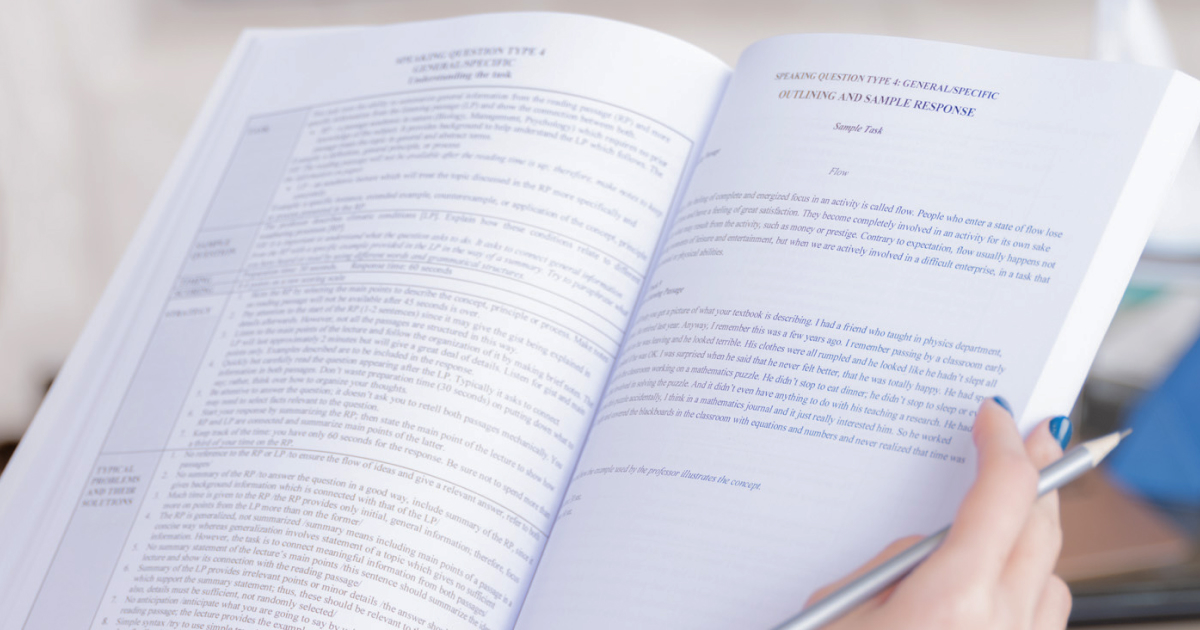⚡ В английском языке прилагательные очень часто употребляются вместе с предлогами.
Прилагательные обычно описывают людей, места, вещи, явления и др.
Предлоги — это слова, соединяющие понятия или показывающие отношение между ними. К ним относятся такие слова как: at, in, on, for, to, with, from и др.
Многим из тех, кто изучает английский, трудно понять почему после прилагательного надо употреблять что-то еще, ведь такая грамматическая структура не присуща нашему родному языку.
К сожалению единого правила употребления этих частей речи вместе не существует, но их легче будет запомнить, если учить не каждое слово отдельно, а словосочетание.
Больше того, изучение выражений и словосочетаний существенно улучшит беглость вашей речи, и вам меньше придется сосредотачиваться на грамматике, ведь, как правило, выражения — неизменны.
Если вы готовитесь к таким экзаменам как IELTS, НМТ или Cambridge English, наша сегодняшняя подборка поможет вам справиться!
Для удобства мы распределили прилагательные в соответствии с предлогами, с которыми они употребляются. Обратите внимание как меняется значение слов, когда мы употребляем их в сочетании друг с другом. Некоторые из них будут переводиться на наш язык не как прилагательные, а как глаголы.
Прилагательные с of
Вот их список:
- accused of — обвиняемый в чем-либо;
- afraid of — напуган чем-то;
- ashamed of — пристыженный;
- aware of — осведомлен, проинформирован;
- capable/incapable of — способен/неспособен что-то сделать;
- certain of/about — уверен в чем-то;
- envious of — завидовать;
- fond of — любить что-то;
- full of — полон чего-то;
- guilty of — виноват;
- innocent of — невиновен;
- jealous of — завидующий;
- proud of — горд за кого, что-то;
- scared of — напуган чем-то;
- short of time/space/breath/money — недостаточно чего-то;
- sick of — уставший от чего-то, раздраженный чем-то;
- silly of sb to do sth — глупо;
- terrified of — в ужасе от чего-то;
- tired of — уставший;
- typical of — типичный.
А теперь посмотрим на примеры c некоторыми из этих выражений:
- The surgeon was accused of negligence — Хирурга обвинили в халатности;
- Don’t go up the tower if you’re afraid of heights — Не поднимайтесь на башню, если вы боитесь высоты;
- I felt so ashamed of myself for making such a fuss — Мне было так стыдно за то, что я подняла такой шум;
- She’s well aware of her strengths and weaknesses as an artist — Она хорошо знает свои сильные и слабые стороны как художника;
- A force ten wind is capable of blowing the roofs off houses — Ветер силой десять баллов способен срывать крыши с домов;
- He was quite certain about/of his attacker’s identity — Он был совершенно уверен в личности нападавшего;
- This kind of hot and spicy food is very typical of the food in the south of the country — Такая горячая и острая пища очень характерна для юга страны.
Прилагательные с to
- addicted to — зависимый от;
- allergic to — аллергический; такой, что не переносит чего-то;
- cruel to sb — жестокий в отношении кого-то/чего-то;
- friendly to sb — дружелюбный в отношении кого-то/чего-то;
- generous to sb — щедрый в отношении кого-то/чего-то;
- grateful to sb — благодарен кому-то/чему-то;
- identical to — схож с чем-то;
- married to — женат;
- nice to sb — хороший в отношении кого-то/чего-то;
- opposed to — противоположный;
- related to — связанный, родственный;
- similar to — аналогичный, подобный.
Также смотрим на примеры с этими словами:
- A lot of people nowadays have become addicted to the internet — Многие люди в наше время стали зависимы от интернета;
- My dad’s allergic to pop music — У моего отца аллергия на поп-музыку;
- The tests are identical to those carried out last year — Тесты идентичны тем, что проводились в прошлом году;
- Children can be very cruel to each other — Дети могут быть очень жестокими друг к другу;
- Rachel seems to be married to = very involved with her new job at the moment, so we hardly ever see her — Рейчел, похоже, замужем за = очень увлечена своей новой работой, поэтому мы ее почти не видим;
- His view of the situation is diametrically opposed to mine — Его взгляд на ситуацию диаметрально противоположен моему;
- Experts believe that the large number of cancer cases in the area is directly related to the new nuclear power station — Эксперты считают, что большое количество случаев заболевания раком в этом районе напрямую связано с новой атомной электростанцией.
Прилагательные с at
Следующими разберем прилагательные, которые обычно стоят в предложениях вместе с предлогом at. Это такие:
- amazed at — поражен, потрясен;
- angry at/with sb — зол на кого-то;
- bad/good at — плохо или хорошо что-то делать;
- weak at — слабо что-то уметь делать;
- surprised at — удивлен;
- terrible at — очень плохо что-то делать.
Несколько предложений с примерами:
- She was amazed at how calm she felt after the accident — Она была поражена тем, как спокойно она себя чувствовала после аварии;
- He’s really angry at/with me for upsetting Sophie — Он очень зол на меня за то, что я расстроил Софи;
- She’s very good at geography — Она очень хороша в географии;
- He was always weak at/in languages but strong in science — Он всегда был слаб в языках, но силен в науках;
- We were very surprised at the result — Мы были очень удивлены результатом;
- She was terrible at singing karaoke — Она ужасно пела в караоке.
Прилагательные с about
Дальше — сочетание с предлогом about:
- angry about sth — гневаться на что-то;
- anxious about — беспокоиться, волноваться о чем-то;
- careful about sth — быть осторожным;
- concerned about — заинтересован;
- enthusiastic about — восторженный, заинтригованный;
- excited about — взволнован чем-то;
- furious about — разъяренный;
- sad about — расстроен;
- serious about — иметь серьезные намерения;
- worried about — волноваться о чем-то.
А теперь посмотрим, как употреблять эти словосочетания в предложениях:
- I don’t understand what he’s angry about — Я не понимаю, на что он сердится;
- The drought has made farmers anxious about the harvest — Засуха заставила фермеров беспокоиться об урожае;
- He’s in a really foul temper so be careful about what you say to him — Он очень вспыльчив, так что будьте осторожны с тем, что говорите ему;
- Many people are very concerned about the destruction of the rainforests — Многие люди очень обеспокоены уничтожением тропических лесов;
- You don’t seem very enthusiastic about the party — don’t you want to go tonight? — Кажется, ты не в восторге от вечеринки — разве ты не хочешь пойти сегодня?
- Are you getting excited about your holiday? — Вы уже предвкушаете свой отпуск?
Прилагательные с with
- associated with — связанный с чем-то, ассоциироваться с чем-то;
- bored with — пресыщенный;
- busy with sth — заниматься чем-то, быть занятым;
- careless with — равнодушен к чему-то;
- clever with — хорошо владеть чем-то, быть ловким в чем-то;
- crowded with — переполнен, пресыщенный;
- delighted with — восхищенный, заинтригован, очарованный чем-то;
- fed up with — уставший, сыт по горло чем-то;
- hopeless with — разочаровавшийся;
- satisfied with — доволен;
- sympathetic with — сочувствовать.
Например:
- Nobody likes to be associated with failure — Никто не любит, когда его ассоциируют с неудачей;
- He was getting bored with doing the same thing every day — Ему надоело делать одно и то же каждый день;
- The kids are busy with their homework — Дети заняты домашними заданиями;
- My mother is very clever with her hands — Моя мама очень ловко орудует руками;
- The hospitals were crowded with more than the 120 injured — Больницы были переполнены более чем 120 ранеными;
- Pat was delighted with her new house — Пэт была в восторге от своего нового дома.
Прилагательные с in
Какие именно прилагательные используются с in?
- engaged in – заинтересован, занят;
- experienced in – иметь опыт в чем-то;
- interested in — интересоваться;
- involved in — заниматься чем-то;
- disappointed in — разочароваться в чем-то;
- skilled in — квалифицированный;
- successful in — успешный, иметь успех в чем-то.
Уже традиционно, смотрим на примеры:
- UN-Women will remain actively engaged in its follow-up — ООН Женщины будет продолжать активно участвовать в последующей деятельности;
- She is very experienced in marketing — Она обладает большим опытом в области маркетинга;
- She’s not especially interested in sport — Она не особо интересуется спортом;
- Maria was so involved in her work that she didn’t hear me come in — Мария была так увлечена своей работой, что не услышала, как я вошел;
- His parents were bitterly disappointed in him — Его родители были горько разочарованы в нем;
- My mother is very skilled at/in dressmaking — Моя мама очень искусна в шитье одежды;
- The company was successful in its bid — Компания успешно подала заявку на участие в конкурсе.

Прилагательные с for
С предлогами, которые мы будем рассматривать дальше, уже не так много выражений. В частности, с for употребляются два.
Late for — опаздывать
- You’ll be late for your flight if you don’t hurry up — Вы опоздаете на самолет, если не поторопитесь.
Suitable for — соответствовать чему-то, подходить
- The film is not suitable for children — Фильм не подходит для детей.
Прилагательные с on
Так же имеем два случая использования и с on.
Keen on — интересоваться, увлекаться чем-то
- She’s keen on playing tennis — Она увлекается игрой в теннис.
Based on — основанный на, опираться на
- All these new products were based on extensive market research — Все эти новые продукты были разработаны на основе обширных исследований рынка.
Прилагательные с by
А вот с этим предлогом примеров несколько больше:
- amazed by — пораженный, ошеломленный;
- disturbed by — обеспокоен;
- fascinated by — очарован, ошеломленный;
- shocked by — шокирован.
Такой вид имеют предложения с этими выражениями:
- We were amazed by what she told us — Мы были поражены тем, что она нам рассказала;
- CESCR was disturbed by the high HIV rate — Комитет ООН был обеспокоен высоким уровнем заболеваемости ВИЧ;
- They were absolutely fascinated by the game — Они были совершенно очарованы игрой;
- He was visibly shocked by the incident — Он был заметно шокирован случившимся.
Прилагательные с from
И напоследок посмотрим, какие прилагательные стоят в паре с предлогом from:
- different from — другой, не похожий на что-либо;
- safe from — в безопасности, защищенный от чего-то;
- absent from — отсутствующий;
- free from — освобожден от чего-то.
Например:
- Emily is completely/entirely different from her sister — Эмили полностью отличается от своей сестры;
- No country is safe from natural disaster and slow-onset environmental changes — Ни одна страна не застрахована от стихийных бедствий и медленно наступающих изменений окружающей среды;
- John has been absent from school/work for three days now — Джон отсутствует в школе/на работе уже три дня;
- The organization is a charitable enterprise, so it is free from tax worldwide — Организация является благотворительным предприятием, поэтому не облагается налогами по всему миру.
Теперь вы знаете больше о том, как свободно и естественно общаться на английском языке, а еще — как набрать себе больше баллов на экзаменах, используя такие словосочетания. Но пока продолжается полномасштабная война в Украине, сдать международные экзамены здесь невозможно.
Однако Grade Education Centre сотрудничает с польскими партнерами и регистрирует на экзамены Cambidge English. Мы проводим полную консультацию и сопровождение, проводим оплаты и решаем организационные вопросы.
Переходите по ссылке и узнавайте больше о регистрации на Кембриджские экзамены по английскому в Польше вместе с Grade.









Спасибо за ваш комментарий! После модерации мы опубликуем его на нашем сайте :)